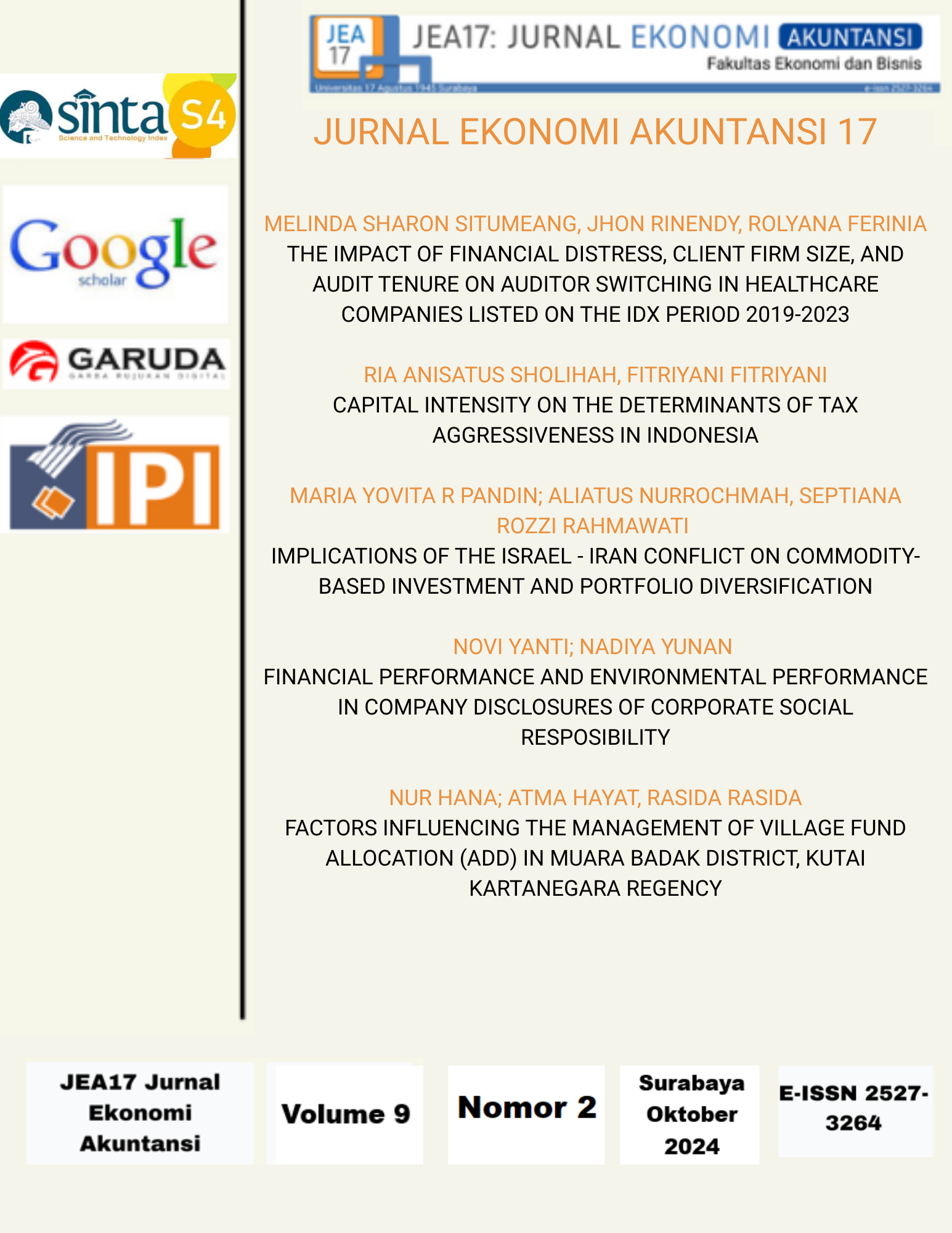IMPLICATIONS OF THE ISRAEL - IRAN CONFLICT ON COMMODITY-BASED INVESTMENT AND PORTFOLIO DIVERSIFICATION
DOI:
https://doi.org/10.30996/jea17.v7i2.12230Abstract
This study examines the effects of the Israel-Iran conflict on commodity-based investments and portfolio diversification on a global scale. The primary aim of this research is to assess how the conflict influences commodity investments and portfolio diversification strategies. The study adopts a mixed-methods approach, integrating both quantitative and qualitative analyses. The quantitative analysis utilized secondary data, including geopolitical ratios and crude oil prices, sourced from the geopolitical risk index and Investing.com. On the other hand, the qualitative analysis involved distributing questionnaires via Google Forms to selected participants, with the primary criterion being their status as investors. The results of hypothesis testing showed that none of the proposed hypotheses were supported. These findings suggest no significant relationships between the variables analyzed: the Israel-Iran conflict does not significantly impact portfolio diversification, portfolio diversification does not significantly influence commodity-based investments, and the Israel-Iran conflict does not have a meaningful effect on commodity-based investments. The study concludes that, within the context of this research, the examined variables do not demonstrate a statistically significant relationship.
Downloads
Downloads
Published
Issue
Section
License
Authors whose manuscript is published will approve the following provisions:
- The right to publication of all journal material published on the JEA17: Jurnal Ekonomi Akuntansi website is held by the editorial board with the author's knowledge (moral rights remain the property of the author).
- The formal legal provisions for access to digital articles of this electronic journal are subject to the terms of the Creative Commons Attribution-ShareAlike (CC BY-SA) license, which means JEA17: Jurnal Ekonomi Akuntansi reserves the right to store, modify the format, administer in the database, maintain and publish articles without requesting permission from the Author as long as it keeps the Author's name as the owner of Copyright.
- Printed and electronically published manuscripts are open access for educational, research, and library purposes. In addition to these objectives, the editorial board shall not be liable for violations of copyright law.











